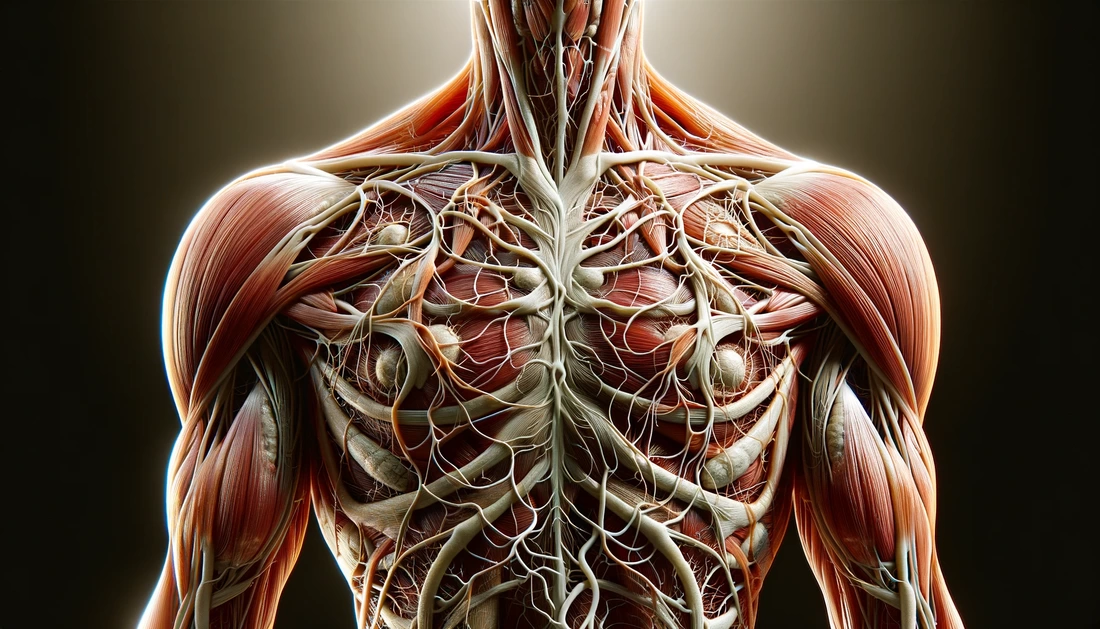Picture your body as a complex network of interconnected parts, like a finely tuned machine. Now, imagine fascia as the scaffolding that holds everything together – muscles, organs, joints, you name it. Without fascia, we'd be a bit of a mess, to be honest!
But here's what makes fascia truly remarkable: it's not just a passive structure. Nope, it's a living, breathing part of you, constantly adapting and responding to your movements. It's like having a built-in support system, always there to keep you going.
Now, let's talk about how we can keep our fascia in top shape, especially as we age. After all, our bodies change over time, and it's essential to give our fascia the love and attention it deserves.
Hydration is Key: First things first – water is your fascia's best friend. Just like you need to stay hydrated to feel your best, your fascia needs it too. Drinking plenty of water helps keep your fascia hydrated and supple, supporting optimal movement and flexibility. So, grab that water bottle and drink up!
Move It or Lose It: You've probably heard the saying, "use it or lose it," right? Well, the same goes for your fascia. Regular movement, whether it's through stretching, yoga, or gentle exercises, is crucial for keeping your fascia happy and healthy. It helps prevent fascial restrictions and promotes circulation, ensuring that your fascia stays in tip-top shape.
Treat Your Fascia to Some TLC: Think of your fascia as a hard-working employee – it deserves a little pampering now and then! Techniques like foam rolling, massage, or myofascial release can work wonders for relieving tension and improving fascial health. It's like giving your fascia a well-deserved spa day!
Watch Your Posture: Good posture isn't just about looking confident (although that's definitely a plus!). It's also essential for maintaining the health of your fascia. Poor posture can put extra stress on your fascia, leading to stiffness and discomfort. So, make an effort to sit up straight and stand tall – your fascia will thank you for it!
Fuel Your Body Right: Last but not least, let's talk about nutrition. Eating a balanced diet rich in anti-inflammatory foods can do wonders for your fascia. Think fruits, vegetables, and healthy fats – they help reduce inflammation in your body, including your fascia, promoting overall health and well-being.
Facing fascial discomfort alone can be daunting, but you're not on this journey solo. At Acadiana Pain & Performance Rehab, we are here to support you.
Let's uncover the root causes of your discomfort and take proactive steps toward better health in 2024. Contact us at (337) 504-5144 to schedule an appointment and begin your journey toward improved fascial health.


 RSS Feed
RSS Feed